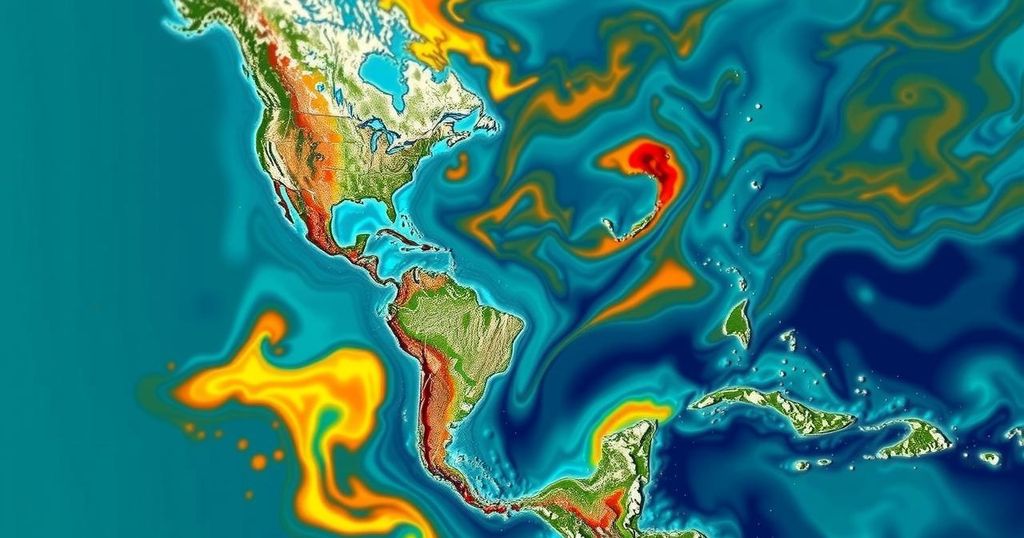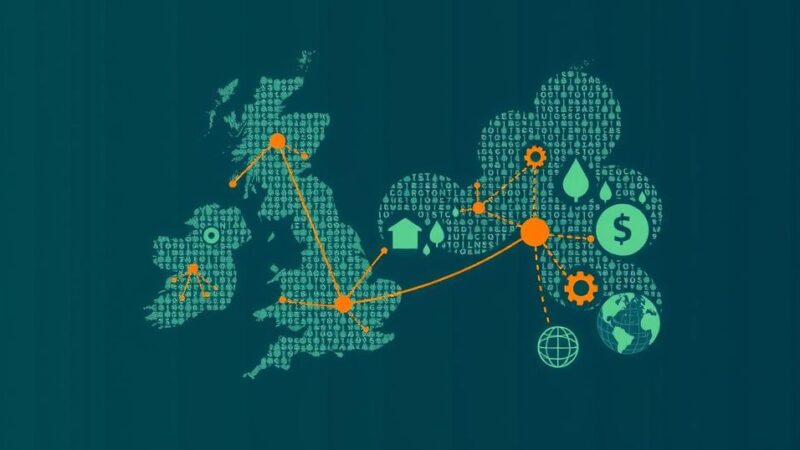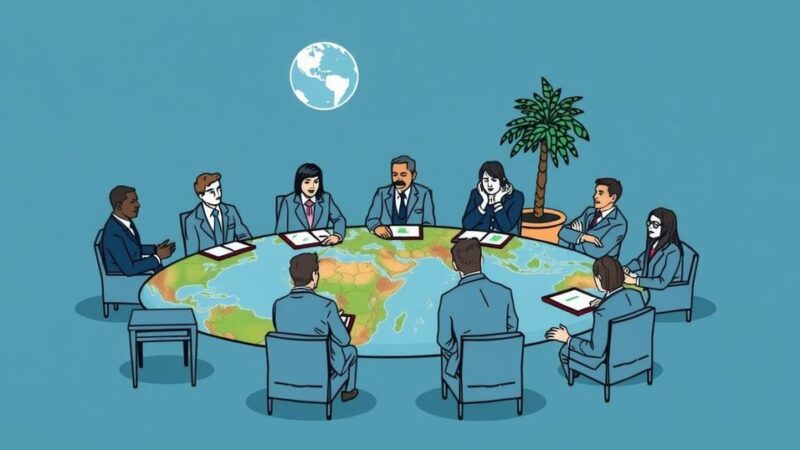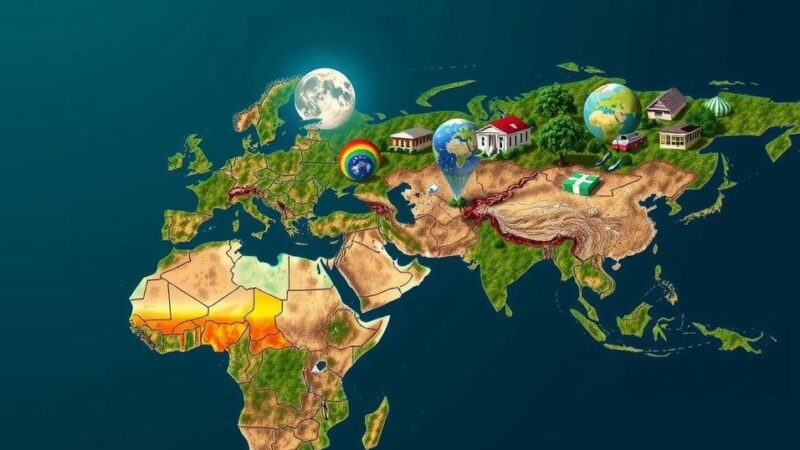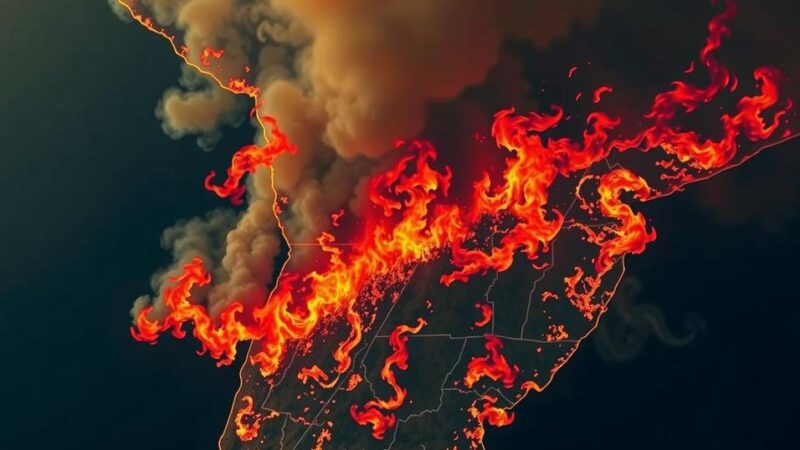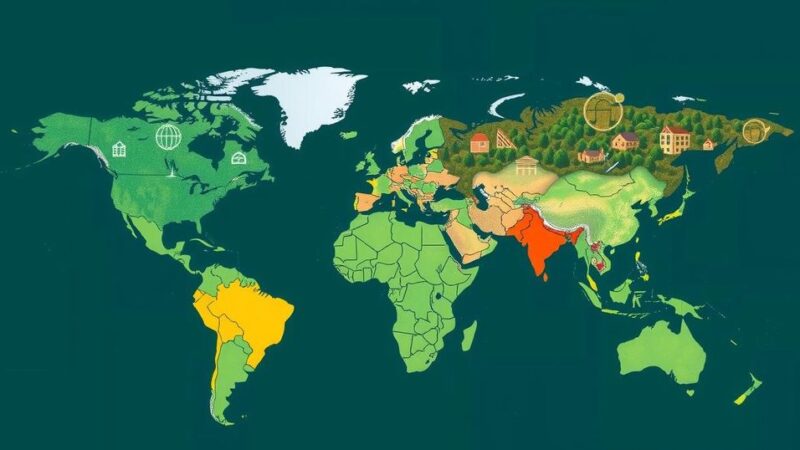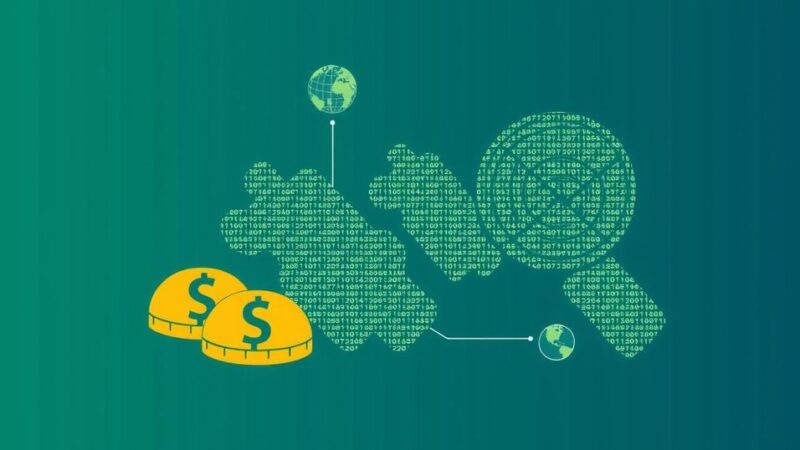COP29 concluded with a commitment to increase climate financing to $300 billion annually by 2035. Despite this positive step, experts believe it falls short, as the world faces potential climate thresholds and increasing severe weather events impacting billions. Developing countries bear the brunt of these changes, with significant GDP losses, highlighting the urgent need for climate justice and resilience support.
The recently concluded United Nations Climate Change Conference (COP29) in Baku has resulted in a pivotal climate agreement, which aims to increase climate financing for developing nations to $300 billion per year by 2035, a significant rise from the previous $100 billion. Although this is seen as a progressive move, many experts and advocates argue that it remains insufficient in addressing the urgent needs of those affected by the ongoing climate crisis. This year could potentially mark the first instance of exceeding the 1.5°C threshold, a critical limit for managing climate-related impacts effectively.
The influence of climate change, exacerbated by phenomena such as El Niño and La Niña, has already resulted in extreme weather conditions affecting over 1.6 billion people in the last five years alone. Estimates regarding the economic losses from climate-related disasters range significantly, from $115 billion to $300 billion annually, with the most severely affected being low-income nations that struggle with minimal capacity for response and adaptation. In regions such as Africa, the toll of climate change could be translating to losses of 5-10% of GDP each year.
It is imperative that we prioritize climate justice for communities in the most significantly impacted areas, who contribute the least to global emissions yet face the greatest risks. Supporting initiatives that bolster climate adaptation and resilience is essential to ensure that these communities are not neglected in the face of escalating climate challenges.
The climate crisis is becoming increasingly evident as global temperatures rise due to human activities. Events like El Niño and La Niña have profound effects on global weather patterns, leading to extreme conditions such as droughts and floods. This situation has worsened climate vulnerabilities for many developing nations, especially those already facing economic challenges. Recognizing these disparities is crucial in formulating effective climate policies and financial support measures to aid affected populations. The recent COP29 agreement seeks to address some of these issues but falls short of the necessary scale of intervention required.
In summary, the outcomes of COP29 represent a modest yet important advancement in global climate finance, yet they are insufficient to meet the urgent and growing needs of vulnerable populations worldwide. The looming threat of exceeding the 1.5°C threshold due to climate change, alongside the massive economic burden on developing countries, underscores the necessity for continued advocacy and action toward climate justice and resilience support. Without concerted efforts, those most affected by climate impacts may continue to suffer disproportionate hardships.
Original Source: reliefweb.int
